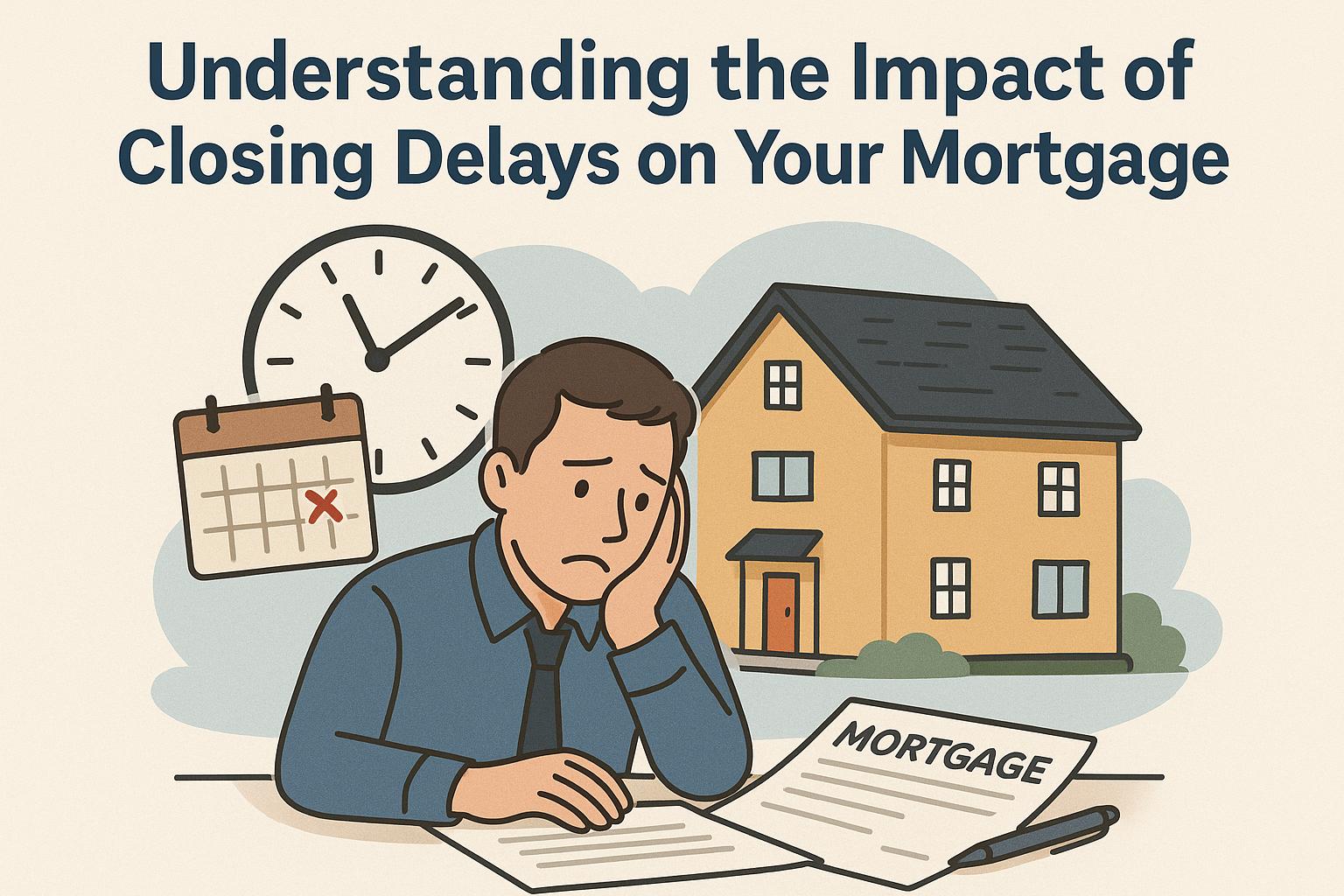
In the mortgage process, a closing delay can have far-reaching consequences for both buyers and sellers. Understanding these impacts can help stakeholders navigate potential challenges and mitigate risks associated with delays. Moreover, addressing such issues proactively can save time, reduce stress, and possibly prevent financial losses. In this detailed exploration, we will delve deeper into the reasons behind closing delays, the financial implications, the impact on the buyer-seller dynamic, and how to effectively mitigate these delays.
Closing delays can occur due to a variety of reasons. One of the most common causes is issues related to financing. For instance, unexpected changes in a borrower’s financial situation can lead to complications in finalizing the loan. This can include sudden job loss, a significant change in credit score, or unanticipated large expenses that alter the debt-to-income ratio. These issues necessitate time-consuming re-evaluations by lenders. Additionally, property appraisal disputes can cause hold-ups, especially if the appraised value comes in lower than the sale price. This discrepancy can lead to renegotiations or require the buyer to come up with additional funds, delaying the closing process.
Another frequent cause of closing delays is the title search. Problems such as unresolved liens, easements, or contested ownership can require further investigation, extending the closing timeframe. For instance, if a prior mortgage was not properly discharged or there is a dispute over the rightful property owner, extensive legal work may be needed to resolve these issues. Furthermore, inspection-related concerns, including necessary repairs and renegotiations, can also delay the process. Buyers may demand that significant issues uncovered during inspections be addressed before closing, which can prolong negotiations and extend the timeline.
Closing delays often come with significant financial repercussions. For buyers, these delays can lead to potentially higher interest rates. If the lock on an agreed-upon interest rate expires, buyers may find themselves subject to prevailing rates, which tend to fluctuate, often upwards. This change can increase the long-term cost of the mortgage significantly. Furthermore, extended delays can result in additional costs in the form of rent or temporary housing. Buyers who must vacate their current residence by a certain date might need to incur unplanned expenses for temporary lodging.
For sellers, delays can result in an extended mortgage responsibility. During this period, they must continue to cover expenses like property taxes, utilities, and insurance. These unforeseen costs can add up, particularly if a new purchase depends on the sale of the current property. Moreover, the uncertainty can disrupt financial planning, especially if funds from the sale are earmarked for specific investments or purchases.
A delayed closing can strain the relationship between buyers and sellers. Frustrations may arise, potentially leading to renegotiations or, in some cases, deals falling apart entirely. The uncertainty and adjustments required can test the patience and goodwill of both parties. It’s crucial for both parties to maintain open lines of communication to address concerns and work towards a resolution. Keeping each other informed of any developments and working collaboratively can help preserve the deal and foster a better understanding between the parties involved.
Contracts often contain clauses that address potential delays, such as specific provisions for extensions or penalties. However, not all contingencies can be accounted for, and unforeseen delays could lead to legal disputes. It’s imperative for both buyers and sellers to understand the terms of their contract and seek legal advice when necessary. This understanding can help prevent escalation into more severe disputes. Both parties should consider including a clause that specifies the course of action in case of a delay, such as agreed-upon extensions or specific remedies. Buyers and sellers should also be aware of any local or state regulations that might impact their contractual obligations in the event of a delay.
Proactive steps can be taken to reduce the likelihood of closing delays. Thorough preparation and organization can dramatically reduce these risks. Preparing thorough documentation and maintaining open communication with lenders, real estate agents, and other key stakeholders can be instrumental. Additionally, vigilant management of deadlines and submission of complete and accurate documents can prevent unnecessary delays. Regularly reviewing your financial status and ensuring no significant changes occur until closing can also minimize risks associated with financing issues.
Furthermore, scheduling inspections, appraisals, and title searches early in the process can help identify and address potential issues well before closing. Addressing repairs or disputes ahead of time gives both parties a clearer picture of expectations and reduces the chance of unforeseen obstacles arising late in the process. Buyers and sellers should both engage with experienced real estate professionals and consider seeking legal advice to ensure comprehensive understanding and preparation.
In summary, while closing delays in the mortgage process can have significant impacts, understanding and preparing for these potential challenges can facilitate a smoother transaction for all parties involved. By addressing these issues upfront and maintaining clear communication, both buyers and sellers can contribute to a more efficient and less stressful property transaction. For more information on how to manage the mortgage process effectively, visit our detailed guide here.
This article was last updated on: November 27, 2025